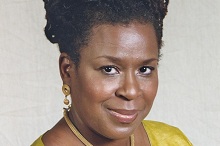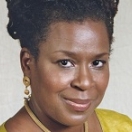
 It has been seven years since the official recognition by the US Congress and the White House of June as National Caribbean American Heritage Month (NCAHM), chalking up another milestone in Caribbean American History. Caribbean people have been coming here for a long time. Caribbean immigrants have been a part of America’s intelligentsia and intellectual tradition -- John Russworm, a Jamaican, started the first black newspaper, and the Harlem Renaissance can count among its leaders many of Caribbean ancestry, such as J.A. Rogers, Claude McKay, and Marcus Garvey. The history and the destinies of the Caribbean and the USA are inextricably linked.
It has been seven years since the official recognition by the US Congress and the White House of June as National Caribbean American Heritage Month (NCAHM), chalking up another milestone in Caribbean American History. Caribbean people have been coming here for a long time. Caribbean immigrants have been a part of America’s intelligentsia and intellectual tradition -- John Russworm, a Jamaican, started the first black newspaper, and the Harlem Renaissance can count among its leaders many of Caribbean ancestry, such as J.A. Rogers, Claude McKay, and Marcus Garvey. The history and the destinies of the Caribbean and the USA are inextricably linked.
When I started the Institute of Caribbean Studies (ICS), almost twenty years ago, I envisioned ICS as a space for the Caribbean diaspora to engage in the practice of citizen advocacy that is the culture of the American democratic tradition; to advance our interests, for I believed then and now that a better world is possible. I thought it vital that Caribbean Americans become stakeholders in the US/Caribbean dialogue, and in the Caribbean development discourse. Back then, it was not the norm for a young immigrant woman with no money to stake out a claim in the Washington, D.C. intelligentsia. ICS started by operating with solely the talent, time and treasure of an all-volunteer cast, and a skeleton budget, and I must admit that at times I have questioned my own sanity. But always, there is still small voice saying, “If not now, when? If not you, who?” And so, along with the few committed, I persist.
I came of age in the era of “better-must-come” Jamaica, the daughter of a well-loved and respected school teacher and community leader, who modeled self-discipline and service to community. Further, since coming to America in 1976 to study industrial engineering at the University of Buffalo, I learned the adage taught by one of my “sheroes” the Hon. Shirley Chisholm, of Caribbean heritage, that “service was the rent one pays for the life we enjoy on this earth.” Over the years, I have also learned that America is a collective idea in constant refinement, and that the American dream is one that all of us who come to its shores have a hand in framing and reshaping. I believe that Caribbean Americans must play their role in dreaming a successful 21st Century America into being, and as such, ICS is an essential messenger, and Caribbean American Heritage Month (CAHM) must be a womb for the nurturing and birthing of common cause.
CAHM gives us visibility by bringing our history and the context of our belonging in and to America to light. Caribbean Americans have played a historic role in shaping the ideals and values of this nation -- titans like James Weldon Johnson and W.E.B. DuBois, who had Caribbean roots, can be said to be two of the progenitors of the Civil Rights movement. It is important that new immigrants understand the privileges and responsibilities that come with living in one of the most successful political experiments in human history -- this democracy called the United States of America. The 21st century brings with it new challenges for the human family -- such as climate change and water security. Caribbean Americans must play a role in the shaping of America’s future, and thus the Caribbean and the world. We can learn agency from the examples of Gen. Colin Powell and Eric Holder, the sons of immigrants who came through Ellis Island in search of the American dream.
It is thus, with deep gratitude, I accept the honor of recognition as a White House Champion of Change, on behalf of all the volunteers who have dreamed alongside me. This honor encourages my hopes and emboldens me to continue to dream of the construction of the Caribbean American collective. Through Caribbean American Heritage Month, we will continue to birth new organizations and cultivate a sense of community. We will dream into being new leaders who will help to construct a better life for us here “at home,” as well as for those we leave behind in the places we call “homeland.” Through our churches, alumni organizations, and hometown associations, we will create housing developments, youth enterprise clubs, and farmer marketing and trading cooperatives. Our healers and scientists will go beyond medical missions to perform tele-surgery miracles, link hospitals in the Caribbean to hospitals in the US, and create academic exchanges and networks that solve challenges that bedevil our common future. Together we must build on the foundation ICS has created, to help dream into being a more perfect union in today’s America, and a “better-must-come” Caribbean. Yes! A Better World is Possible!
We know that the quality of our future is predicated on our willingness to work to change our present. So we mustsow the seeds that will bring forth a harvest of a brighter and better tomorrow for ourselves, our children, and our children's children. If America is a melting pot, then let it be said that the music, art, dance, food and people of the Caribbean add sugar and spice. For, whether we do it in soca or salsa, compas, zouk or reggae, “We Too Sing America.”
Claire Nelson is the President of the Institute of Caribbean Studies


